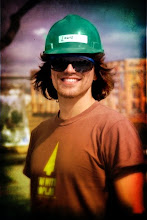Mombasa. East Africa's biggest port bustles with life. Shirtless young men pull heavy carts of fruit down the streets, while others are spotted resting on a pile of dirt they recently shoveled in the midday sun. Small 3-wheeled taxis zip in and out of stalled traffic and abruptly stop in front of any person standing idly by the road, hoping for a customer. The wide sidewalks are lined with mamas sitting on the floor selling coconuts, mangoes, or papaya, as well as street cooks who turn your head at the sweet smell of their freshly cooked food. Whole fish, seemingly still quivering in remembrance of a recent swim, are sold fresh near the water. The vast Indian Ocean shimmers translucent green until the limits of the horizon. This city is enchanted.
Mombasa is home to Kenya's Swahili tribe (actually from the Arabic word sawahil, which means “people of the coast”), yet among them live large cohorts of Middle Easterners and Indians. Muslim women walk around like shadows in their full black buibui. Swahili women wear fashionable “lassos” with colored patterns and a “Kiswahili Saying” written upon them, and Indian girls blithely stroll together along the streets, each dressed in a different, brightly colored sari. Although I love the people in my community, I welcome the cultural diversity Mombasa has to offer like a breath of fresh air.
The humidity attaches itself to my body like another layer of sweat. As I roam the streets I search for the shaded sidewalks so that I may hide from the sun. The chilled avocado juice sold at the corner of the street looks like a tempting option, no doubt a cup of instant diarrhea for tourists unaccustomed to the germs of Africa. As for me, I quickly down a glass without worry. The seducing aroma of roasted meat wafts from the racks of outdoor cooks, so tempting it can make even a devote vegetarian commit heresy. I have yet to try it.
Tourists who spend a day or two in Mombasa usually opt for walking tours to Fort Jesus and trips to the beach. Tourists may just see a glimpse of Mombasa town before they leave, and they will remember large buildings, nice restaurants, and wide roads. But with just a little bit of adventuring down back alleys, I discover an entirely new picture of Mombasa. Despite the touristy 3 to 8 dollar restaurants, I find the local restaurants with the traditional Kenyan food for just under 50 cents. As I continue down these alleys I see mamas hanging their laundry on lines that cut across the walkways. I greet them as I duck under their dripping clothes, and they return a friendly smile and continue with their chores. A few blocks down I come across a few teenagers playing checkers. After a few words, I find myself playing the next game with a small crowd of youth watching. I won the first game and my opponent won the next two.
When I have spare time in Mombasa, I often find myself in a towering 7-story shopping center—but on the 3rd floor in the fabric section. I much enjoy looking at all the different, beautiful fabrics this store has to offer without the constant heckling the street peddlers give me. As I move through the different isles, I conspicuously reach out and feel the texture of the different materials. All the employees know me now. We often have casual conversations in Swahili, and one of them always tells me that I look exactly like the Arsenal football player Tomas Rosicky, and he writes his name on a small piece of paper along with “Jazz 7” meaning “jersey 7” so I can look him up on the internet. Sadly each time I return home, I forget to complete my end of the deal.
I stroll through the open-air markets filled with spices and produce, and often when sellers yell for my attention with, “How are you? Welcome!” I often return a puzzled look at them and pretend I don't speak English. In Swahili I tell them I am from Spain, and I ask them if they know Spanish. Nobody ever knows Spanish, so this gamble always works to my favor. And my Swahili is good enough now that I can complete transactions and have conversations with people, so I take the opportunities in the market to practice speaking and listening.
Mombasa. After I finish my errands I board a matatu to take me back to my village. As we cross the bridge leading away from town I see sailboats making their way out into the open sea, and palm trees along the shores swaying in the breeze, as if waving me goodbye. The emerald ocean twinkles through the dirty windows of the matatu, beckoning me to come back again. This city is enchanted.
Subscribe to:
Post Comments (Atom)

Mombasa is one of my favorite places in Kenya. Your story makes me want to come visit! Thanks for the post. -Jeff Norton
ReplyDelete